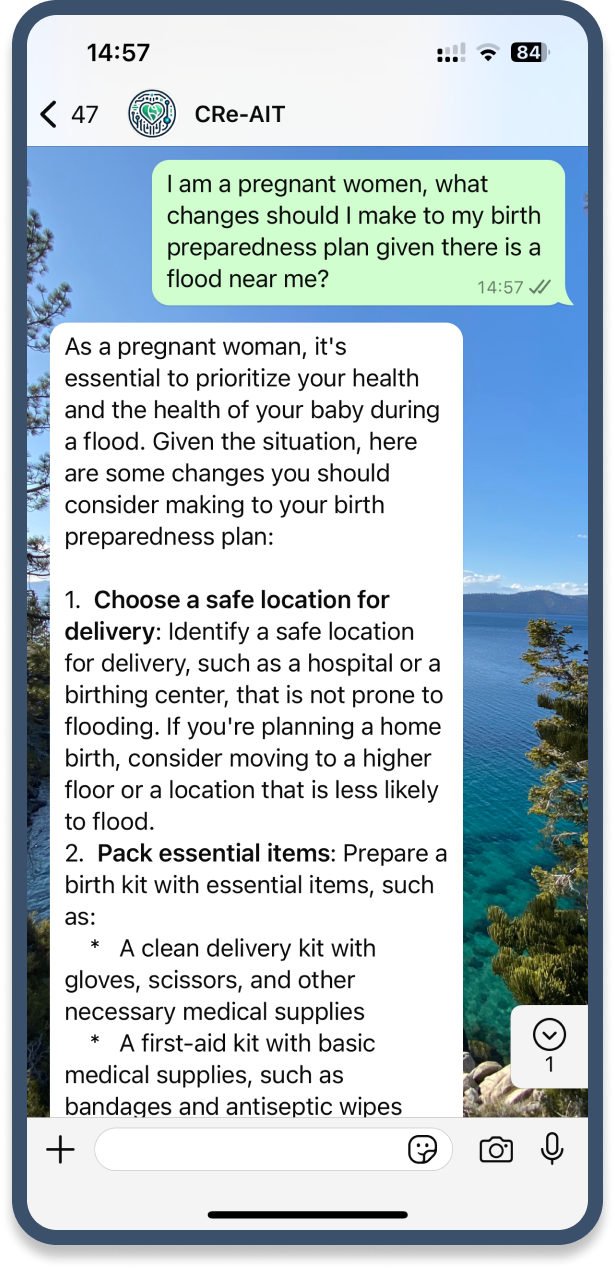The Launch
On September 27, 2024, We presented CRe-AIT to global health and climate leaders, policymakers, and innovators who came together to explore our work at the intersection of climate change and health. The event showcased the tools we are developing to support resilient health systems and emphasised how integrating climate, health, and community data can help healthcare systems adapt to the growing risks posed by extreme weather events and climate-driven health crises.
Showcasing the Dashboard and Chatbot
During the event, we presented the CRe-AIT platform, designed to bring together climate data and health trends in a user-friendly dashboard. Attendees saw how users can map climate events, like floods, against health infrastructure vulnerabilities, and access images of health facilities impacted by disasters, submitted by community health workers.
A live demonstration of the AI-powered chatbot highlighted its practical use. In one example, a pregnant woman asked, "What changes should I make to my birth plan given there’s a flood?" The chatbot provided real-time guidance, helping her safely plan for her delivery during a climate emergency. These examples demonstrate the importance of both big picture and patient-centred solutions during times of crisis.
Key Discussions
Participants from Africa and the Caribbean illustrated how climate disasters, including floods and droughts, are currently severely affecting healthcare infrastructure. Based on the challenges we are facing now the importance of integrating real-time data and predictive analytics to create stronger, more responsive health systems is becoming ever more clear. It was raised that CRe-AIT’s data-driven insights offer targeted solutions to help these regions strengthen their health systems and prepare for future climate risks.
Participants also agreed on the importance of empowering local communities to contribute data. This approach provides valuable insights into on-the-ground challenges, enabling healthcare systems to respond more effectively.

Next Steps: Climate and Health Finance Portal
The conversation also focused on the global landscape of climate and health financing, particularly in lower-income countries. Participants discussed the need for innovative funding models, such as blended finance and public-private partnerships, to accelerate climate adaptation in healthcare systems.
To address this need, CRe-AIT is beginning to develop a Climate and Health Finance Portal, a centralised resource for funding opportunities. This portal will help governments and organisations access and understand climate and health financing options, fostering greater collaboration and investment in climate-resilient healthcare infrastructure.
We are incredibly grateful to everyone who attended the event and shared their insights and experiences. Climate change is fuelling a global health crisis, and it’s essential that we all step up and take action. We deeply appreciate those who are answering this call.
A special thank you to the Health Innovation Exchange for facilitating and hosting this event.
